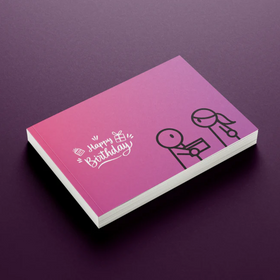on all orders

The Connection Between Indian Culture and Gifting
India is the land of diversity with home to innumerable languages, dialects, ethnicities, and sets of beliefs. Many sub-cultures thrive under the one big umbrella of what we call Indian culture. This overarching culture has many common pointers that connect over more than one billion people not just within the geographical boundaries of India but across the globe.
The mutual exchange of gifts is one of those common denominators of the Indian culture that transcends religious, caste, color, and language barriers. From Kashmir to Kerala, Rajasthan to Assam, and across the Indian Diaspora, the spirit of gifting on festivals, events, and celebrating relationships and personal milestones remain the same.
In this post, we will look at how gifting has acquired such an integral position in Indian culture. We will also shed light on how the tradition of gifting and the Indian culture are linked to each other, the importance of personalized gifts in the Indian context, and many more relevant topics in this article.
Without any further delay, let’s jump into our discussion that underlines gifting in India.
A Diversified Culture that Bolsters on Gift Exchanges
The Indian society represents a culture with a spectrum unity. By spectrum unity, we mean every diverse element in Indian culture stands out on its own and make one impressive exhibit. It won’t be wrong to say that Indian culture represents “unity in diversity.”
Languages, races, religions, and festivals are four of the essential building blocks of any culture. When breaking down the Indian culture into these four essential elements, you come across a stunning display of diversity that’s hard to find in any other culture. There are hundreds of languages and dialects that collectively make the Indian culture. Moreover, almost every major religion that exists anywhere in the world is found and practised in India.
When it comes to festivals, no other culture might host and celebrate more events and occasions than the Indian culture. The racial landscape of Indian culture represents a racial harmony of thousands of years that has given birth to the existing “Indian” race.
All these diverse elements of the Indian culture are strongly connected through the essence of gift exchanges. No matter if you celebrate a particular festival or not, you will become part of it by sending or receiving a gift on it. Moreover, languages and religious norms don’t cancel each other’s concepts and beliefs on gift exchanges. Instead, they mutually reinforce existing beliefs, and this eventually gives rise to a superior essence of gifting in Indian culture, which is greater than any of its individual religious, linguistic, and racial elements.
It doesn’t matter if you are Hindu, Sikh, or Muslim and speak Punjabi or Marathi and have lighter or darker skin. As long as you are part of the Indian culture and celebrate it, you will have more or less the same set of values when it comes to gifting. In this context, the act of gifting strengthens the beautifully diverse or diversely beautiful (whichever way you want to put it) Indian culture.
The Land of Festivals— More Reasons to Send Gifts to Each Other
There is no exaggeration when we say that Indian culture and land entail thousands of festivals. All these festivals have been manifested over thousands of years and stemmed from multitudes of religious beliefs and social customs and values. Even if have to shortlist the number of most popular festivals of Indian culture, we will end up with no less than 30 events. Here is a list of some festivals that are deeply rooted in Indian culture and celebrated pan India and all across the world.
- Diwali
- Holi
- Dussehra
- Eid-Ul-Fitr
- Christmas
- Ganesh Chaturthi
- Maha Shivratri
- Bihu
- Chhath Pooja
- Makar Sankranti
- Durga Puja
- Baishakhi
- Eater
- Onam
- Vishu
- Raksha Bandhan or Bhai dooj
- Budh Poornima
- Krishan Janamashtmi
- Losar Festival
- Hornbill Festival
- Losoong Festival
- Mahavir Jayanti
- Lohri
- Pongal
- Hemis
- Karwachauth
- Navratri
- Teej
- Ram Navami
- Saga Dwa
- Dree festival
- Moatsu Mong
- Lui-Ngai-Ni
- Gangaur
All these festivals have very unique and diverse backgrounds. But again what makes them common with each other is the umbrella of Indian culture.
Gifts are an essential element of festivals all over the world and India is no exception. All the festivals celebrated in the Indian socio-cultural landscape also have a rich tradition of gift exchanges. With so many festivals and their own gifting norms, it is only natural that gift exchanges are pretty big in Indian culture.
Gifts on Festivals— For Love and Relationships, For Harmony and Coexistence
With so many festivals, Indian culture offers individuals to strengthen their love and relationship through gifts. Moreover, gift exchanges on festivals provide an opportunity to the entire society to nurture harmony and a spirit of coexistence.
If we analyze the gift exchanges at festivals, they play a very momentous role in holding the noble values of Indian society. On one hand, they are strengthening personal relationships, and on the other hand, they are promoting harmony and celebrating plurality in society.
The Philosophy of Gifting in Religions
Being the religion of the majority of the population, Hinduism has a huge influence on Indian culture. If, for instance, we examine the teachings of Hinduism, we will find that it categorically emphasizes the significance of gifting. Dana (giving) is one of the essential elements of dharma (religious duty). Both Islam and Hinduism teach their followers that an individual doesn’t acquire wealth for themselves only but the welfare and wellness of the extended family and society at large. This teaching makes gifting a part of dharma.
The Hindu sacred text Bhagavad Gita outlines three types of gifts (Danas). Interestingly, two of those types are considered harmful for the giver and recipient. What elements can turn a concept as beautiful as gifts into something harmful? Which type of gifts is the best? Let’s find out.
- A gift given with no expectation of reward and appreciation—remains beneficial to both the giver and recipient.
- A gift given with an expectation of some advantage or benefit is not good for neither the recipient nor the giver.
- A gift given at the wrong time without taking into account the feelings of the recipient is also harmful to everyone (recipient and giver).
In Islam, gifts distributed with admiration and love are called ‘Hadiya,’ and any gift given for the pleasure of the Lord and as an act of charity is called ‘Sadaqa.’ Both of these acts are commendable in Islam, and the person who participates in gift-giving is promised a reward in the hereafter.
Similarly, Sikh teachings illustrate three pillars of positive living. These include spiritual meditation, striving to earn, and sharing with others. The latter can take the form of food, money, or even time. Gift-giving can also be found in pagan rituals held during winter, which gradually made their way to the much-awaited Christmas rituals in Christianity.
From the above points, it is evident that various religions have set the rules or etiquettes for gift exchanges thousands of years ago. Gifts that are given only based on self-considerations lose their value— this is what Hinduism has been preaching for millennia. Contemporary gifting mannerism is more or less influenced by the gifting philosophy of Hinduism.
Gifts— Connecting Indians All Over the World with Each Other
A report from the United Nations indicates that India has the biggest diaspora population in the world. More than 18 million Indians are living across the globe. It is more than the population of many countries. The wonderful thing about this overwhelming diaspora population is that almost all of them are connected to their homeland. They have their immediate and extended families and friends in India and they are connected to them through gifts.
With all the wide-ranging avenues of gifting that Indian culture provides, people living abroad get many occasions and reasons to send gifts to friends and family. Sending out gifts on festivals and personal occasions makes the Indian culture and community a close-knitted global network.
Personalized Gifts— Perfectly Fits in Indian Culture and Gifting Traditions
What’s better than a simple gift?
A personalized gift that you give to commemorate the special occasions of your loved ones.
Personalized gifts based on original art and made by independent artists have become all the rage across the world including India. Interestingly, personalized gifts are inherently a perfect match for what Indian culture and gifting traditions represent.
Let’s look at all the reasons that perfectly synergize personalized gifts with the Indian culture.
They Are Great for Bonding over Personal Occasions and Memories
When it comes to the significance of personal memories and their celebrations, no other culture and society can beat Indian culture. Whether it is a birthday, wedding anniversary, farewell, graduation ceremony, or any other event for that matter, Indian culture involves very wholesome celebrations. For some, those celebrations might appear over the top. However, Indians and those who are well-accustomed to Indian culture understand the beauty of celebrating personal occasions and memories with such a spirit.
A personalized gift becomes a cherry on top of those celebrations and bonding over personal occasions and memories. For a recipient, getting a gift personalized with their names, photographs or any other piece of personal memory certainly becomes more special than all the other gifts they receive. Personalized gifts are particularly great when the giver is hundreds or thousands of miles away from the recipient. A personalized gift helps givers and recipients to remain close and keep their relationship strong despite having an immense physical distance in between.
They Are Not Occasion-Oriented
Most gifts are occasion-oriented and can only be used at particular moments. For instance, a gift meant for festivals will not be suitable for celebrating personal memories and vice versa. However, that’s not the case with personalized gifts. They are not occasion-oriented. Since they are based on personal details and memories, they are equally good for every event and occasion.
Whether it is Diwali or birthday, you can send the same personalized gifts on these two entirely different occasions. The reason that personalized gifts transcend occasions is pretty simple, i.e., they are exclusively about the recipient and not the event you are sending them on. When it is about a person rather than the event, you can use a personalized gift on all festivals, individual memories, and personal milestones.
They Are Suitable for All Age Groups
The concept of the extended family is quite strong in Indian culture. Here you don’t just exchange gifts with your partners and parents. You also exchange them with your siblings, friends, and even grandparents. When you have an extended list of recipients, you have to factor in the age groups while picking gifts. However, if you opt for personalized gifts, you might not have to stress over how old or young the recipient is because they are suitable for all age groups.
For instance, a personalized photo book curated with your pictures with the recipient is a great gift for every age group. Whether it is your grandma or younger sibling, they will love receiving such a thoughtful gift drawing out sweet memories.
They Let You Support Independent Artists
The importance of an individual and the concept of helping others are big elements of Indian society and culture. In that sense too, a personalized gift can fit in the Indian context. In most cases, creating and sending personalized gifts is not something that big brands offer. It is independent artists with their 100% original creativity that lets you send thoughtful personalized gifts to your loved ones.
In short, when you chose to send personalized gifts, you don’t just give your nearest and dearest the most impressive present. You also get to support independent artists and original art.
Dudus Online — A One-Stop Shop for Sending Personalized Gifts to India from All Over the World
Whether you are living across the Pacific, Atlantic, or down under, with Dudus Online, you are always just one personalized gift away from your loved ones in India. From greeting cards to photo books and stationery items to calendars, there are 100s of personalized gifts that you can commission at Dudus online for recipients of all ages.
Ordering a personalized gift on Dudus Online is as easy as it gets.
- Pick a gift item from our collection
- Send us the personalization details and recipient’s address
- We will create the gift and dispatch it to the recipient’s address
Within few clicks, you can keep the spirit of Indian culture and gift exchange alive while sitting anywhere in the world.





Leave a comment